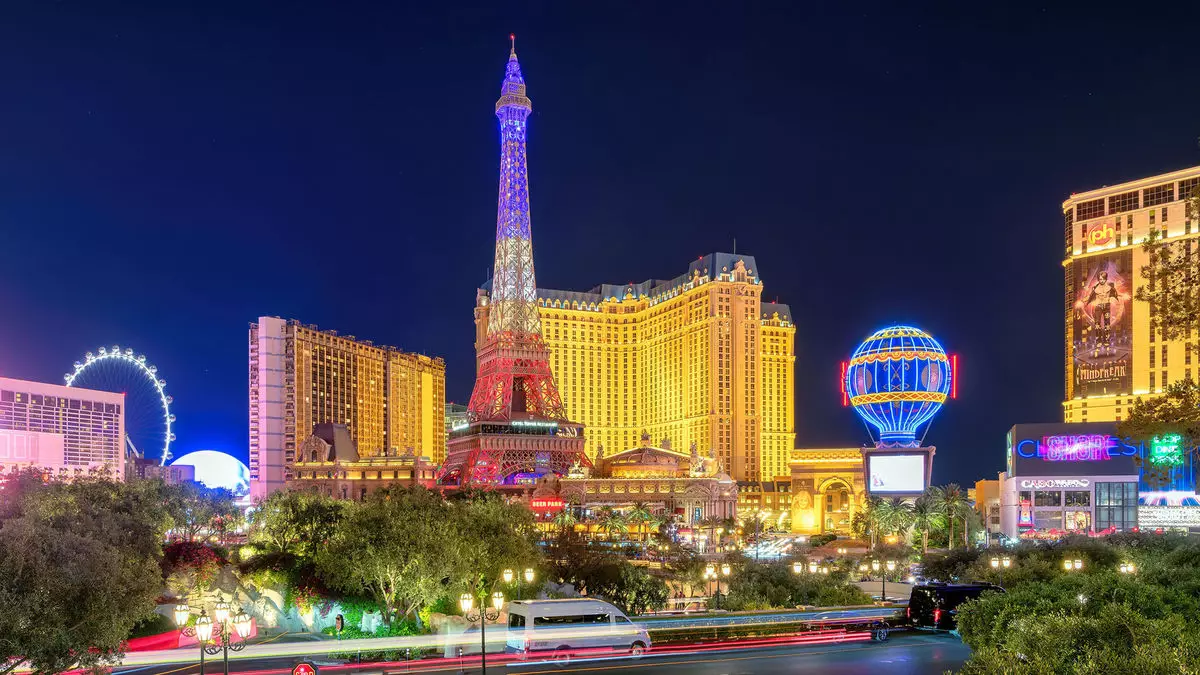Las Vegas, long heralded as the entertainment capital of the world, is facing an unprecedented downturn that threatens its very identity. Once thriving on international tourism, luxury conventions, and a relentless flow of visitors with deep pockets, the city now grapples with the harsh realities of economic uncertainty and declining global interest. Recent data paints a sobering picture: occupancy rates plummeted nearly 15% in June and continued their downward trajectory into July, with the worst declines among major U.S. markets. These figures are not mere numbers but stark indicators of a city fighting to keep its head above water amid turbulent economic currents.
This decline holds serious implications not just for hotel revenues but also for the broader Vegas economy. The city’s famed hospitality ecosystem relies heavily on consistent inflows of foreign travelers, convention attendees, and domestic leisure seekers. When these streams dry up or slow dramatically, the ripple effects threaten to undermine the entire city’s financial fabric. Analyzing these trends, it’s clear that Las Vegas’s decline extends beyond mere seasonal fluctuations or temporary setbacks; it signals a fundamental shift in the city’s tourism paradigm. The question is whether this decline is a blip or the harbinger of a more persistent downturn.
The Root Causes: A Perfect Storm of Economic and International Challenges
At the heart of Vegas’s struggles lies a perfect storm of macroeconomic headwinds and international travel restrictions. The global economy’s jitteriness, coupled with waning consumer confidence, has made potential visitors think twice before booking luxury rooms or planning elaborate trips. The Las Vegas Convention and Visitors Authority’s recent figures—showing a 6.5% decline in visitor volume—are symptomatic of this broader pattern.
But perhaps the most alarming factor has been the sharp drop in international visitors, a crucial segment for Las Vegas’s hospitality outlook. Data indicates a consistent decline in overseas arrivals throughout 2025, with a notable 13.2% decrease in June. Canadian visitors, traditionally a significant source of tourism for Vegas, are notably absent, illustrating how international uncertainty, inflation, and geopolitical factors are dissuading foreign travelers from crossing borders for entertainment and leisure. As U.S. borders tighten and global crises loom, the city’s dependence on international footfall becomes an Achilles’ heel.
Meanwhile, the seasonal nature of Las Vegas tourism has always been a factor, but the pandemic-era excesses of demand have led to an artificially inflated expectation of continuous growth. John DeCree from CBRE acknowledges that part of the decline reflects a return to normal seasonality. However, this oversimplifies the magnitude of the problem. The broader market dynamics—heightened global uncertainty and shifting consumer priorities—are now reshaping Vegas’s once indomitable appeal.
The Industry’s Response: Innovation and Persistence Amidadversity
Despite these formidable challenges, Las Vegas’s hotels and operators are demonstrating resilience through innovative promotion and flexible pricing strategies. Resorts World Las Vegas exemplifies this adaptability by launching attractive packages designed to eliminate barriers for potential guests. Their “All Resort, No Fees” campaign, which removes resort fees and offers free parking, is aimed at appealing to cost-conscious travelers, particularly locals and regional visitors.
Other properties follow suit with targeted offers: Caesars providing significant discounts on rooms and spa services, while Circa Resort offers bundled packages blending lodging, dining, and entertainment. These efforts show an understanding of changing consumer behaviors: value and flexibility are now the top priorities for travelers wary of economic turbulence. Such tactical adjustments highlight Vegas’s adaptive spirit — a city that’s historically risen from crises more than once.
Yet, the effectiveness of these strategies remains uncertain in the long term. While short-term promotions can stimulate bookings, they are unlikely to restore the city’s pre-crisis glory without broader economic stabilizations and international recovery. The fundamental issue is that these measures are band-aids in a landscape fundamentally altered by macroeconomic forces beyond local control. Still, the willingness to innovate and pivot indicates that industry insiders refuse to surrender entirely — a promising sign amidst a bleak outlook.
Looking Beyond the Immediate Horizon
There remains a faint glimmer of hope on the horizon. Industry leaders and local officials are banking on the upcoming fall and winter seasons to rebound, bolstered by a robust schedule of conventions and trade shows. The resurgence in convention attendance, with figures rising 10.7% in May, suggests that B2B events, which are less vulnerable to economic shifts than leisure travel, could provide a stabilizing force.
However, the sustained strength of this recovery hinges on larger economic conditions. A return to consistent international tourism, controlling inflation, and restoring consumer confidence are prerequisites for a full revival. Las Vegas’s ability to adapt with marketing campaigns and value-driven offers demonstrates resilience, but it’s a temporary patch rather than a cure-all for systemic issues.
The city’s core challenge remains: how to rekindle a sense of allure that transcends economic uncertainty and international instability. The optimism surrounding future conventions is valid, but it won’t be enough unless the broader economic environment becomes conducive to travel. Without substantial improvements in these areas, Vegas risks a prolonged period of sluggish performance, risking its place as the premier entertainment destination.
While Las Vegas’s heart beats strong, its resilience now faces the ultimate test — navigating the turbulent waters of a shifting global economy where confidence is fragile, and the future remains uncertain.


Leave a Reply